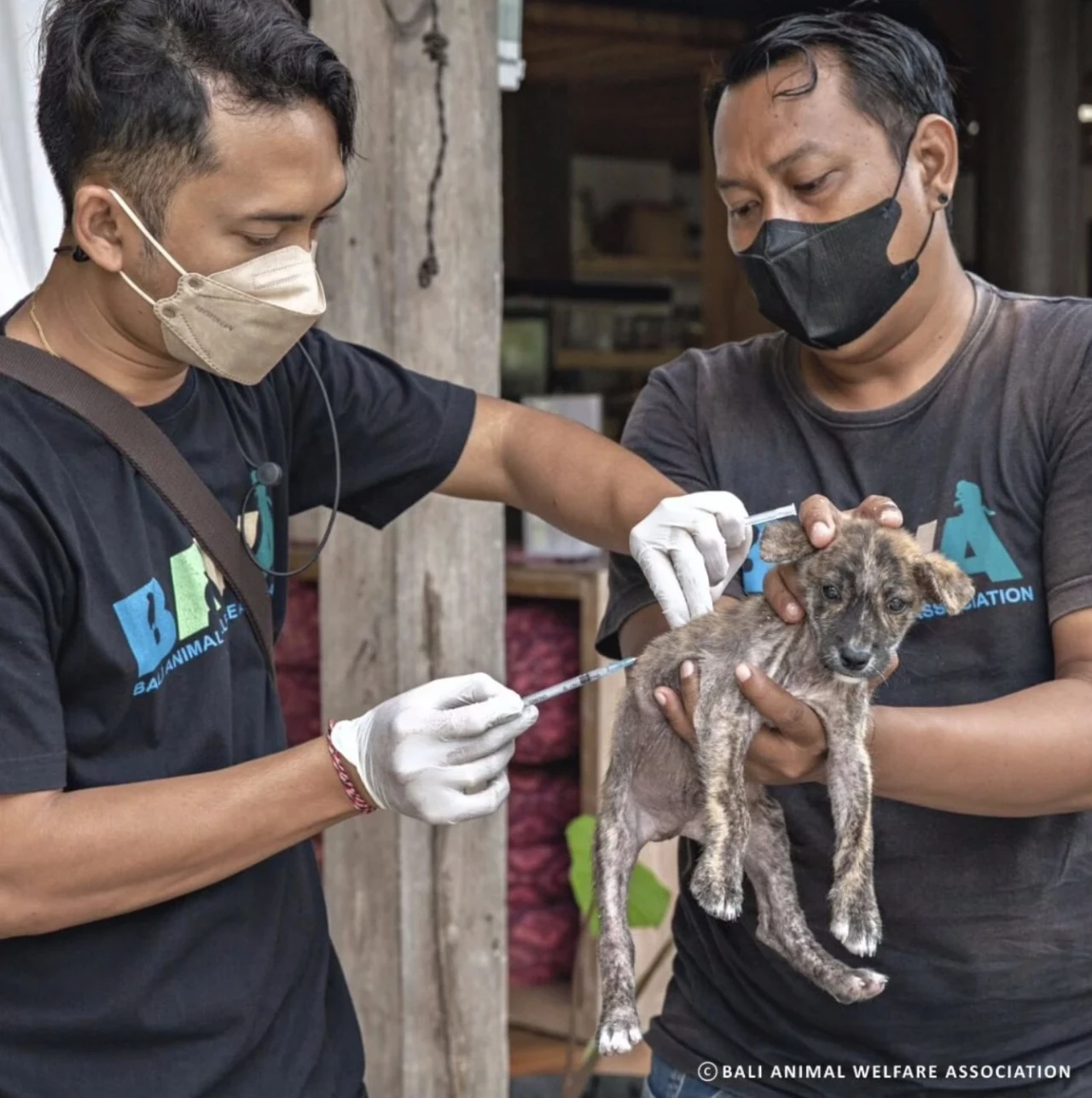Animals transmitting rabies have bitten people in Bali 34,809 times this year alone. This is the statistic up to August 2024, shared by the Secretary of the Coordinating Group for the Prevention and Control of New Zoonotic Infectious Diseases, I Made Rentin. As a result, 263 people were infected, and four died from rabies.

These figures do not indicate an increase in infections; on the contrary, they suggest a decrease. Last year, in 2023, people sought medical help 72,782 times after animal bites. Among them, 635 were infected, and 9 died from rabies.
Despite 2024 not being over yet and Made Rentin stating that the situation is under control, the numbers are still significant. Therefore, the Bali Provincial Health Department urges locals and tourists to remain vigilant. Experts believe that the struggle to eradicate rabies is hindered by some groups of people not understanding the danger. This mainly includes those who neglect animal vaccinations or do not seek medical help after bites.
“Fighting rabies in the coming years will be more challenging due to the limited availability of vaccines and rising operational costs of infection control at the early stages,” Rentin concluded.
In terms of the number of bites, rabies-transmitting animals most frequently bite people in Buleleng (10,710 cases), Badung (10,499 cases), and Denpasar (9,772 cases).
Fatal rabies cases were recorded in Tabanan and Karangasem, with two cases in each district.
To reduce the number of rabies infections, the Bali government, in collaboration with the Regional Coordinating Group for the Prevention and Control of Zoonoses, has developed an action plan. This plan includes monitoring all cases of infection and drawing on the experience of other regions that have successfully implemented advanced rabies control methods. Necessary funds have already been allocated for 2025, a portion of which will be directed towards public education.
In addition, the Bali provincial government is funding a mass vaccination program for pets and stray dogs to reduce virus transmission among the dog population. Similar programs are in place in tourist areas where wild monkeys are found.
This year, most rabies vaccinations were administered in Buleleng (7,674 vaccines), Denpasar (7,583 vaccines), and Badung (6,557 vaccines). Speaking on behalf of Karangasem Regency, the head of the Department of Agriculture, Food, and Fisheries, I Nyoman Siki Ngurah, said that out of the known 81,000 dogs in the district, 70% have already been vaccinated against the virus.
“Our vaccinations are carried out regularly and according to schedule in villages. We strive to ensure 100 percent vaccination of dogs,” he said. Ngurah also thanked the public for their responsible attitude towards dogs.
According to the World Health Organization, dog bites and scratches are the cause of 99% of rabies cases in humans, and they can be prevented through dog vaccination and bite prevention.
Tourists should know that once an infected person shows clinical symptoms of rabies, it means the virus has reached the central nervous system and the patient cannot be saved. Therefore, the WHO warns that rabies deaths can be prevented through timely post-exposure prophylaxis (PEP), which prevents the virus from reaching the central nervous system. The procedure includes thorough wound washing, a course of rabies vaccinations for humans, and, if indicated, rabies immunoglobulins (RIG).
Therefore, if a person has bite or scratch marks after contact with a dog, monkey, or other mammal, they should immediately seek medical help. Hospitals and local clinics in Bali have extensive experience in dealing with rabies and can provide necessary assistance to tourists as well.
However, the WHO considers mass vaccination of dogs and puppies the most cost-effective strategy to combat rabies because it can stop virus transmission at the source.

You can add one right now!